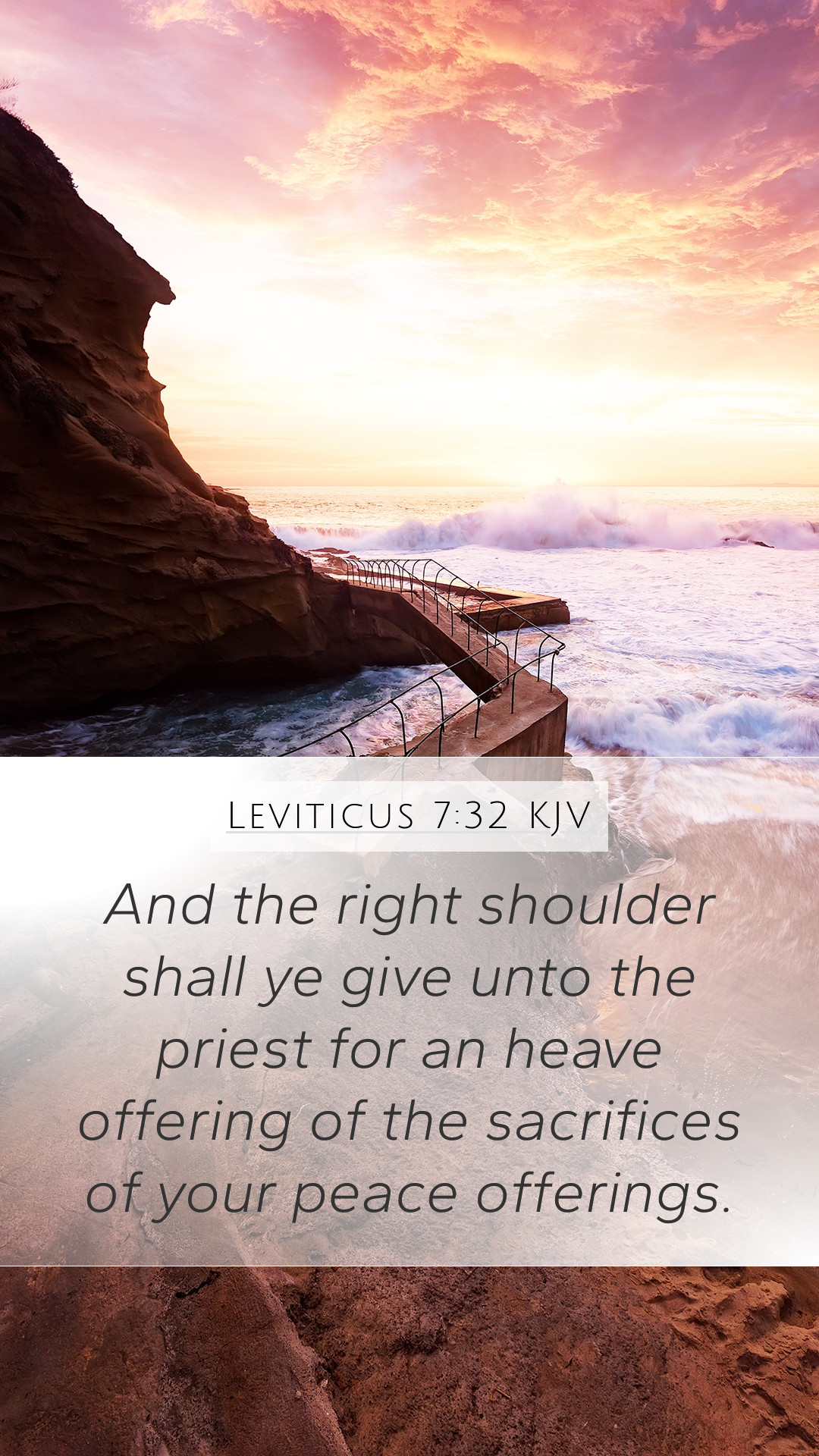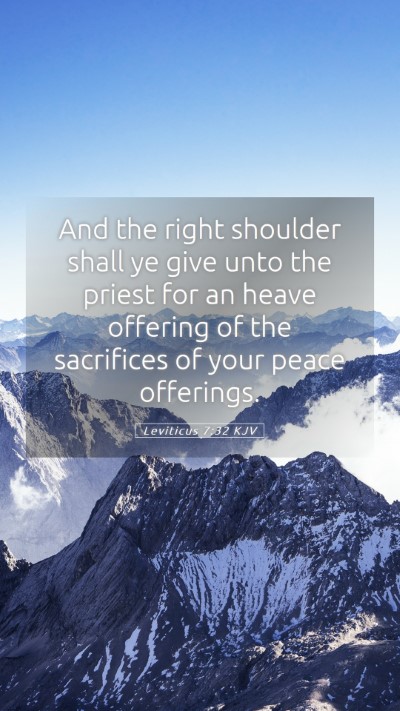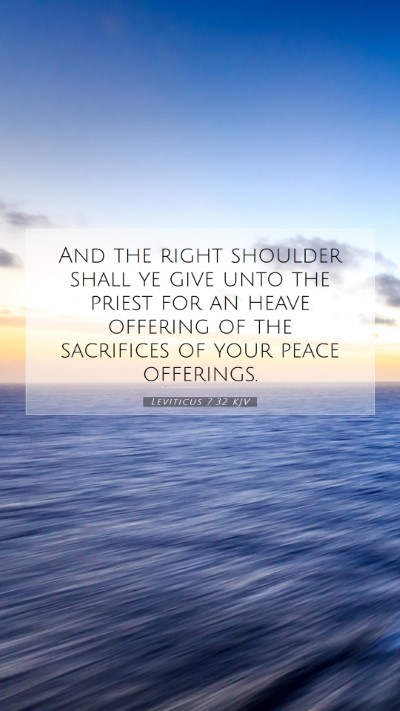Understanding Leviticus 7:32
Leviticus 7:32 states:
"And the right shoulder shall ye give unto the priest for an heave offering of the sacrifices of your peace offerings."
This verse pertains to the offerings made by the Israelites and highlights the significance of specific parts of the sacrifices designated for the priests. The right shoulder, being a primary part of the animal sacrificed, symbolizes strength and is given to the priest as part of their portion in the offerings made to God. The following is a detailed exploration of this verse, incorporating insights from public domain commentaries.
Bible Verse Meaning
The meaning of Leviticus 7:32 extends into various facets of worship and the priestly duties established by the Law. Several commentaries offer rich interpretations of this verse:
-
Matthew Henry's Commentary:
Henry explains that the heave offering is significant because it is a portion specifically set aside for the priests. This emphasizes God’s provision for those who serve in His ministry. The right shoulder is not only a choice cut but represents the strength and vigor of the sacrifice, illustrating how offerings to God should be given with intention and honor.
-
Albert Barnes' Notes:
Barnes elaborates on the distribution of offerings, noting how the right shoulder signified a share for the priests in the peace offerings. This practice reflects the communal aspect of sacrifices, where the offeror participates in a feast with God and the priests. It illustrates the fellowship between God, the worshipper, and the priestly class.
-
Adam Clarke's Commentary:
Clarke draws attention to the spiritual implications of the heave offerings. He interprets the act of offering the right shoulder as an acknowledgment of God's provision. The peace offering signifies reconciliation and communion with God, wherein the priest plays a vital role as an intermediary.
Key Insights from the Verse
The following points summarize vital aspects of Leviticus 7:32, reflecting its implications on worship, priesthood, and community:
-
God's Provision:
This verse exemplifies God's care for the priests and their families, providing for them through the offerings of the people.
-
Symbolism of Offerings:
The right shoulder's choice symbolizes the best of the sacrificial animals, indicating that offerings to God should be our very best.
-
Peace Offerings:
Peace offerings, to which this verse refers, symbolize reconciliation with God and highlight the relational aspect of worship.
-
Priestly Role:
The priest's receiving of the right shoulder reinforces the important role of the priest as a mediator between God and the people, allowing for the establishment of relationship through shared meals.
-
Community Aspect:
By sharing the offering with the priests, the worshipper acknowledges their role within the broader community of faith.
Application to Daily Life
Understanding Leviticus 7:32 invites us to reflect on our own offerings to God today, whether they be in the form of time, resources, or talents. Here are some contemporary applications:
-
Offering Your Best:
Just as the Israelites were commanded to give the right shoulder, we should strive to give our best to God, whether in service or worship.
-
Community and Sharing:
The communal aspect of offerings encourages us to participate actively in our faith communities, sharing what we have with those serving in ministry.
-
Seeking Reconciliation:
As the peace offerings symbolize reconciliation, believers are encouraged to seek peace and restoration in their relationships with others and with God.
Related Bible Cross References
To further explore the themes in Leviticus 7:32, consider these related verses:
- Leviticus 3:5: Discusses the fat and the breast of peace offerings.
- Numbers 18:8-11: Details the priestly gifts and the offerings reserved for the priests.
- Deuteronomy 18:3-5: Explained the rights of the priests regarding the offerings from the sacrifices.
Conclusion
In conclusion, Leviticus 7:32 encapsulates the rich tradition of offering within Hebrew worship, reminding believers of the importance of giving their best to God and maintaining strong communal ties through shared worship and service. Each analysis of this verse highlights its enduring relevance and the principles it sets forth for worship practices today. Understanding Scripture in this way enhances our Bible study insights and enriches our personal relationship with the Divine.


